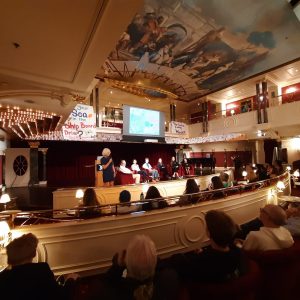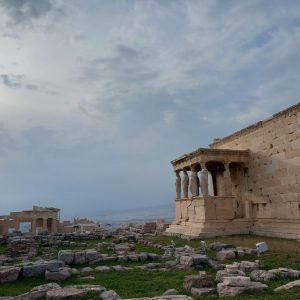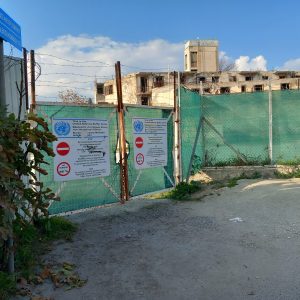Associate Professor Julia Khrebtan-Hörhager recently returned from a unique semester abroad. She was on Semester at Sea (SAS), a program that takes students and faculty around the world together.
A voyage of discovery
Khrebtan-Hörhager is a Global Scholar/Intercultural Specialist for the Institute for Shipboard Education, which manages SAS. On each SAS voyage, college students from hundreds of universities all over the world stay on the same ship to study with faculty and earn CSU college credits. Khrebtan-Hörhager has been on two SAS voyages, once in 2018 and again this spring on voyage 131.
Voyage 131 took 530 students, faculty, and their families from the Middle East through the Suez Canal to the Mediterranean region across ten countries: the United Arab Emirates, India, Kenya, Jordan, Cyprus, Croatia, Spain, Morocco, Portugal, and Germany.
Here’s a glimpse of what voyage 131 was like for students:
Khrebtan-Hörhager is fluent in several languages and has taught college courses in German and Italian, so international travel is familiar territory for her. Still, SAS is a challenging experience. “Many of those discoveries—about human right abuses, or environmental issues—can be… exhausting at times,” she said. “It is truly a voyage. A voyage of discovery, and not only of the world and its ways—but also of yourself, your true character, and sometimes your limits.”
Life on the ship
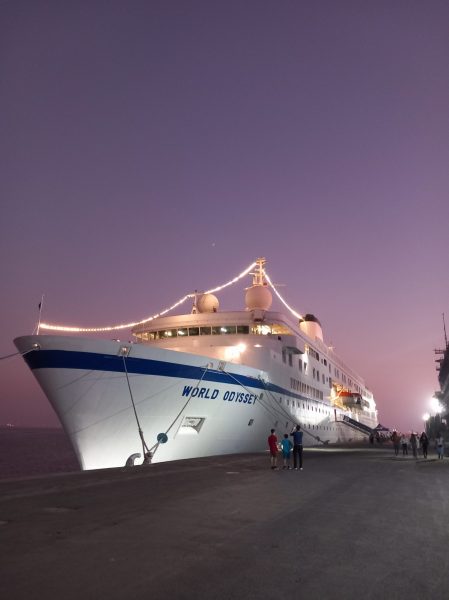
Over the semester, half the voyage’s days are spent on the ship. Instead of weekdays and weekends, classes happen every single day at sea on an alternating schedule. For every class, faculty plan at least eight hours of complementary field work for the students.
Every Semester at Sea student is required to take a Global Studies course. Students also enroll in specialized classes and attend evening seminars, where experts make guest appearances alongside SAS faculty.
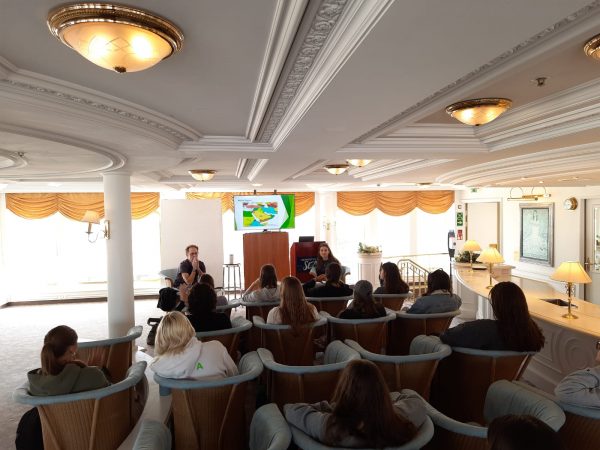
One of this spring’s guest speakers was Skye Fitzgerald, the award-winning documentary filmmaker who was also a guest of honor at our 2022 ACT Human Rights Film Festival. Fitzgerald spoke to Khrebtan-Hörhager’s Intercultural Communication in Global Context course and Communication and International Conflict Management course after they viewed two of his recent films about crises in Yemen and the Mediterranean. “It is a very unique sensation—to watch the films about the area while being there, in the area, while crossing the Suez Canal and passing Yemen, while being in the Mediterranean, and seeing and experiencing its complexity,” she said.
Exploring the world
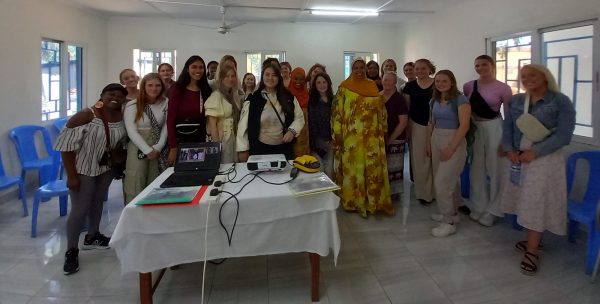
Khrebtan-Hörhager also taught a Gender and Communication: Voices of Women of the World course. “We visited the Women’s Empowerment Network in Mombasa town in Kenya, a community-based organization formed to positively engage and help communities become self-sustainable by providing enabling environments with access to education, training, and skills,” she said. “We had an open conversation with the women who run the project about what gender traditions and changes are prominent in Kenyan coastal society.”
The field work for Khrebtan-Hörhager’s two other previously mentioned courses included exploring Bollywood and Dharavi Slum life in Mumbai, India, and attending a lecture at the University of Cyprus in Limassol on the politics of memory regarding the still-divided island.
“Many SAS experiences greatly contributed to my most recent book, Communicating the Other across Cultures, where I explore how the brutal process of cultural Othering is simultaneously timeless and time-sensitive, universal and culturally unique, and where I demonstrate how cultural Othering can lead to atrocities,” Khrebtan-Hörhager said. “I believe that comparative cross-cultural learning is essential for creating global solutions for different crises—be they political, humanitarian, or environmental.”
Communicating the Other across Cultures: From Othering as Equipment for Living, to Communicating Other/Wise is being published this November by University of Michigan Press.
Here are some more photos Khrebtan-Hörhager took during her travels:
The globetrotting continues
This July, Khrebtan-Hörhager is leading a CSU Education Abroad program in Rome, Italy.
“Rome never disappoints,” she said. “The Italians have mastered and perfected the art of godere la vita—the art of truly and skillfully enjoying life.” If anyone knows this for sure, it’s Khrebtan-Hörhager!
To follow along and see what our globetrotting students are up to, check out our Instagram page here.
